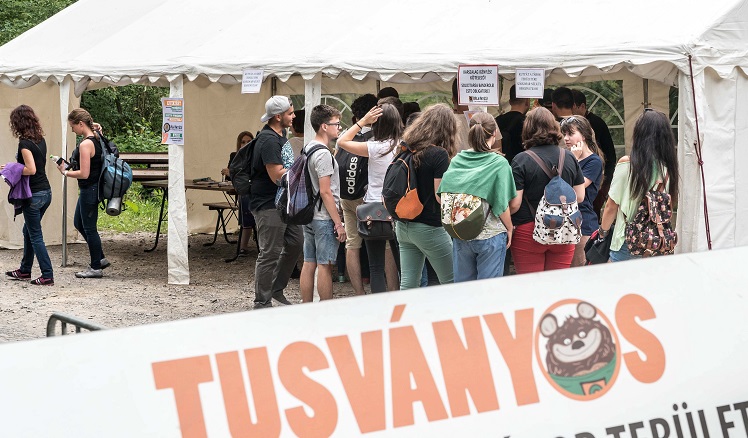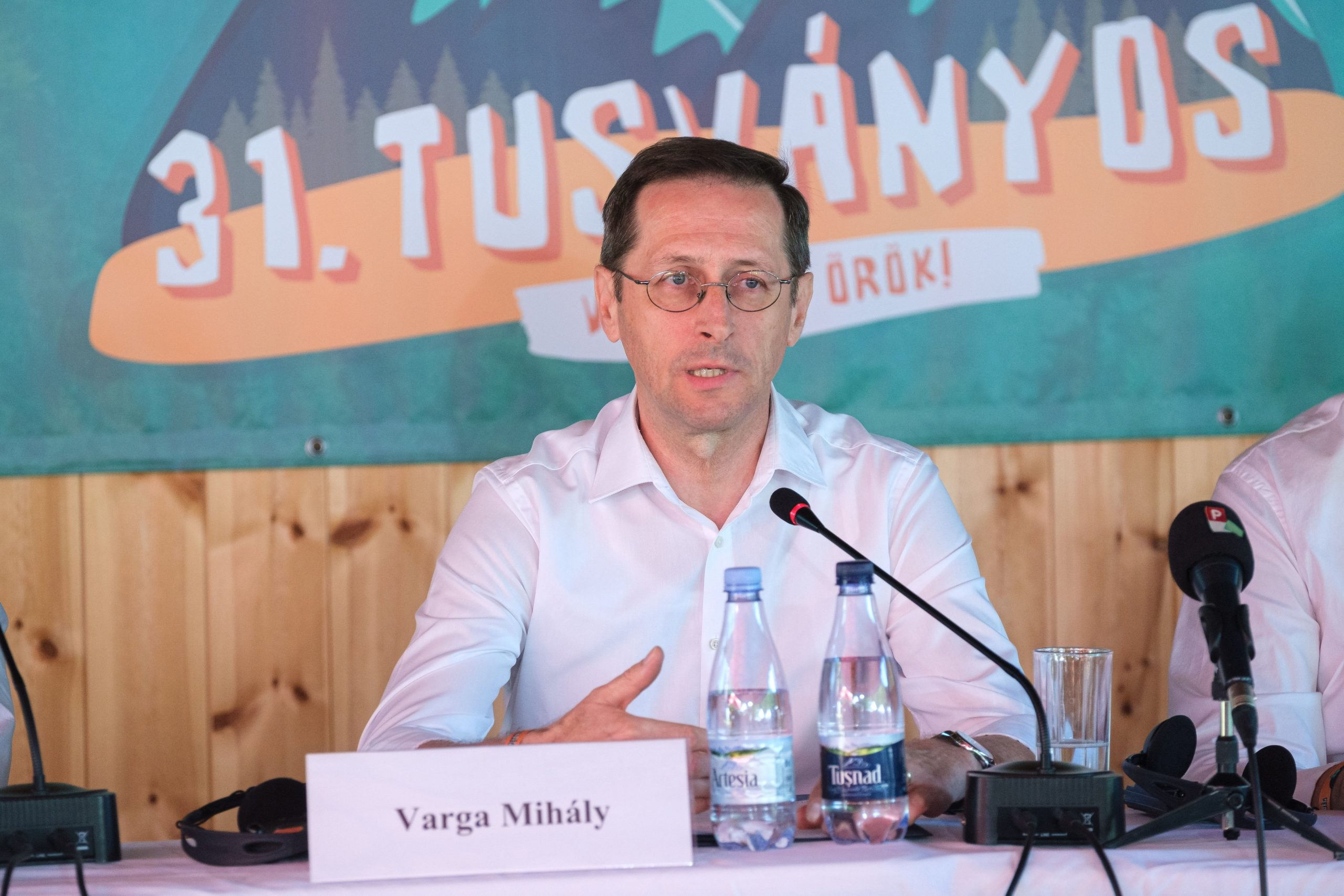
Tusványos will offer a wide range of cultural, traditional, educational, and entertainment programs, with the Hungarian Culture Tent and the Jenő Buzánszky Sports Terrace as new venues.Continue reading

The European Union is essentially weakened by its own sanctions- the question is whether it can survive the punitive measures against Russia, the Finance Minister said in Tusnádfürdő, at the Bálványos Free Summer University and Student Camp, Tusványos, on Thursday.
Speaking at the panel discussion entitled Before the storm, after the storm? – Inflation, energy prices, recession, Mihály Varga stressed that Europe needs Russian energy for the time being, but the transition will take a long time and resources will be needed.
The sanctions in place are not working, there is no international cooperation on this issue and the EU is very concerned about the euro/dollar exchange rate. In this respect, Europe “is deep among the losers,” he said, adding that the sanctions policy is more of a problem for Europe than for the person against whom it was imposed.
The Finance Minister reiterated that the Hungarian government insists on peace and security, and that it is seeking to use the resources at its disposal to preserve the socio-economic achievements made so far.
He said that rising inflation, rising energy and food prices, the increase in interest rates, and the resulting increase in the cost of credit show that the world, including Hungary, is heading towards an economic slowdown.
Whether there will be a real recession or a very sharp slowdown is not known at the moment, but there is no analysis today that expects a radical improvement in the situation, he said.
In this situation, we have to stick to fundamental values and security, Mihály Varga reiterated, noting that the recently adopted budget for next year, in which the defense and the energy protection fund will serve the country’s security and stability, serves this purpose.
The introduction of the former is an attempt to maintain better energy prices for households than at present and to balance the security risks posed by the Russian war and migration, he added.
To mitigate these risks and build up reserves, the Hungarian government intends to reduce debt next year and the replenishment of energy storage remains a priority, he said.
He recalled that the US Federal Reserve was the first to respond to the crisis, willing to go into recession in order to rid inflation from the economy, but this strategy is less sensitive to unemployment, livelihood, and social problems.
This is pushing the world economy towards recession, and from this point of view the current situation is calm compared to what is going to happen in the economies,” Varga said.
The Hungarian government has tried to curb inflation with a price freeze, but this is not sustainable in the long term, he added, adding that this measure gives domestic businesses the opportunity to prepare for a more difficult economic environment and to adjust.
Attila Cseke, Romanian minister for development, public administration, and public works, said that in the current economic situation, the way forward for Romania is not to impose austerity but to promote development and investment.
This year, the development ministry will finance investments worth nearly €20 billion, while the reconstruction fund will be able to launch tenders worth around €6 billion, he said.
“We are in the middle of a storm right now,” Gábor Teleki, CEO of Richter Gedeon Pharmacia Rt. and Pharmafarm Rt. commented on the economic situation. He explained that the logistics chain, which is important for the companies, is in a state of flux, fuel prices have doubled, and wage increases have increased companies’ expenses.
We are already in the storm, and for the average person, a year or two of hardship could follow. Global inflation was nine percent, with five to seven percent in 2021,” said Christopher P. Ball, director of the Central European Institute in the United States.
Featured image via Nándor Veres/MTI